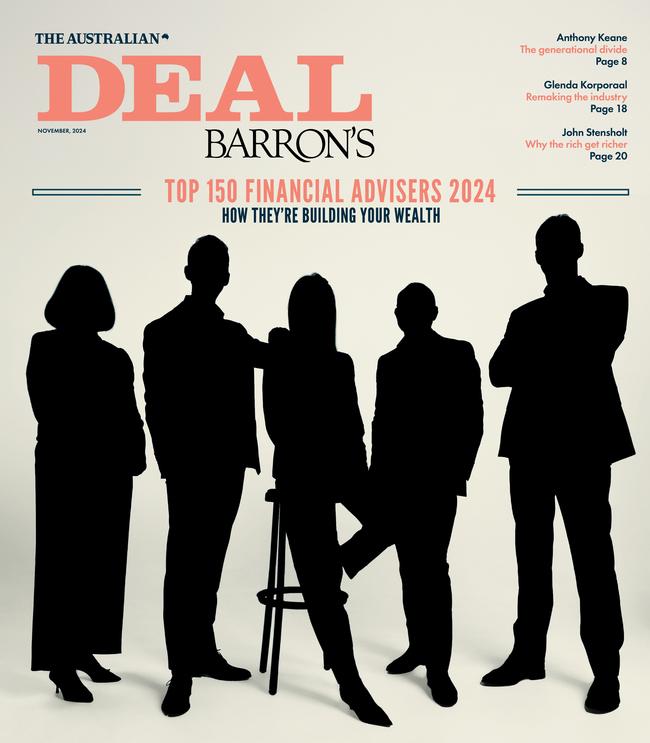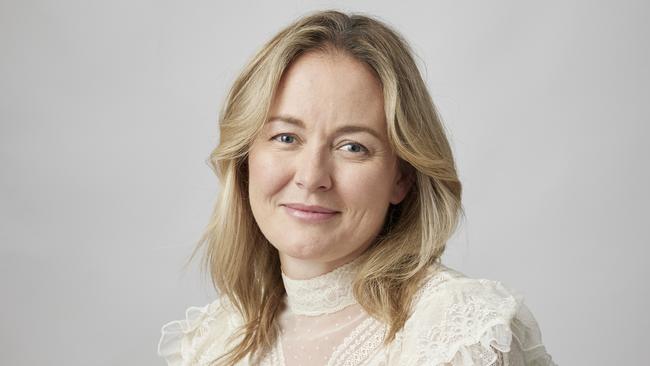Delivering Better Financial Outcomes the biggest shake-up to the advice industry in a decade
The biggest shake-up to the financial advice industry in a decade is designed to see more people being counselled on their growing wealth.

It might not seem like it, but Australians are wealthier than ever. And yet very few – just 10 per cent according to some estimates – get professional financial advice on what to do with that wealth. The rest go it alone, locked out of an industry that charges thousands of dollars a year to give counsel on financial goals.
That should soon change, with the government’s Delivering Better Financial Outcomes (DBFO) package bringing about the biggest shake-up to the advice industry in a decade.
The move to split the DBFO package into two tranches means we’re only at the halfway mark.

This article is from The 2024 Barron’s Top 150 Financial Advisers magazine which is published in The Australian in full on November 21.
The first tranche, dealing with minor changes, including streamlining fee consent and clarifying the rules for deducting advice fees from super fund accounts, came into effect in July. That was the easy part – and even these “light touch” reforms had to be amended to appease the industry.
The second tranche, which the government says it wants to legislate before the 2025 election, tackles the bigger issues holding back advice, including repealing the requirement for complex (and costly) statements of advice, and expanding who can provide personal advice, to include super funds and other institutions.
This second tranche will also introduce “nudges” so super funds can increase engagement with members at key decision points, including in the lead-up to retirement.
But with the number of people needing financial advice expected to jump substantially in the coming years, and only 16,000 advisers operating in the market, super funds aren’t sitting around waiting for these changes. Indeed, they are well under way in gearing up for the seismic shift in members seeking advice.
Already, people who lack advisers are swarming super call centres with advice questions. It makes sense. For many, aside from the family home, super makes up the vast majority of their wealth.
Colonial First State Super chief executive Kelly Power says the fund gets up to 4000 calls a month from members seeking advice. The fund has about one million members, half of whom are unadvised. But under existing rules, and until the second tranche passes, super funds can’t delve into a member’s personal circumstances to provide tailored personal advice.

Reading the room, several funds have introduced low-cost digital advice tools to meet basic advice needs. For more complex advice, most funds link their members up with external financial advisers, while a minority, including the $140bn UniSuper, directly employ financial advisers. But the cost of this advice can run into thousands of dollars a year.
The missing piece has always been giving people access to mid-level advice, which is what DBFO is attempting to solve.
“Our reforms will help millions of Australians receive advice and information that improve their outcomes and keep themselves safe from dodgy scammers,” Financial Services Minister Stephen Jones tells The Deal.
“We have announced the most comprehensive package of financial advice reforms in a decade. The first tranche made significant improvements to pain points in the delivery of financial advice by cutting red tape. The second tranche is being drafted and we intend to consult on the legislation soon.”




To join the conversation, please log in. Don't have an account? Register
Join the conversation, you are commenting as Logout